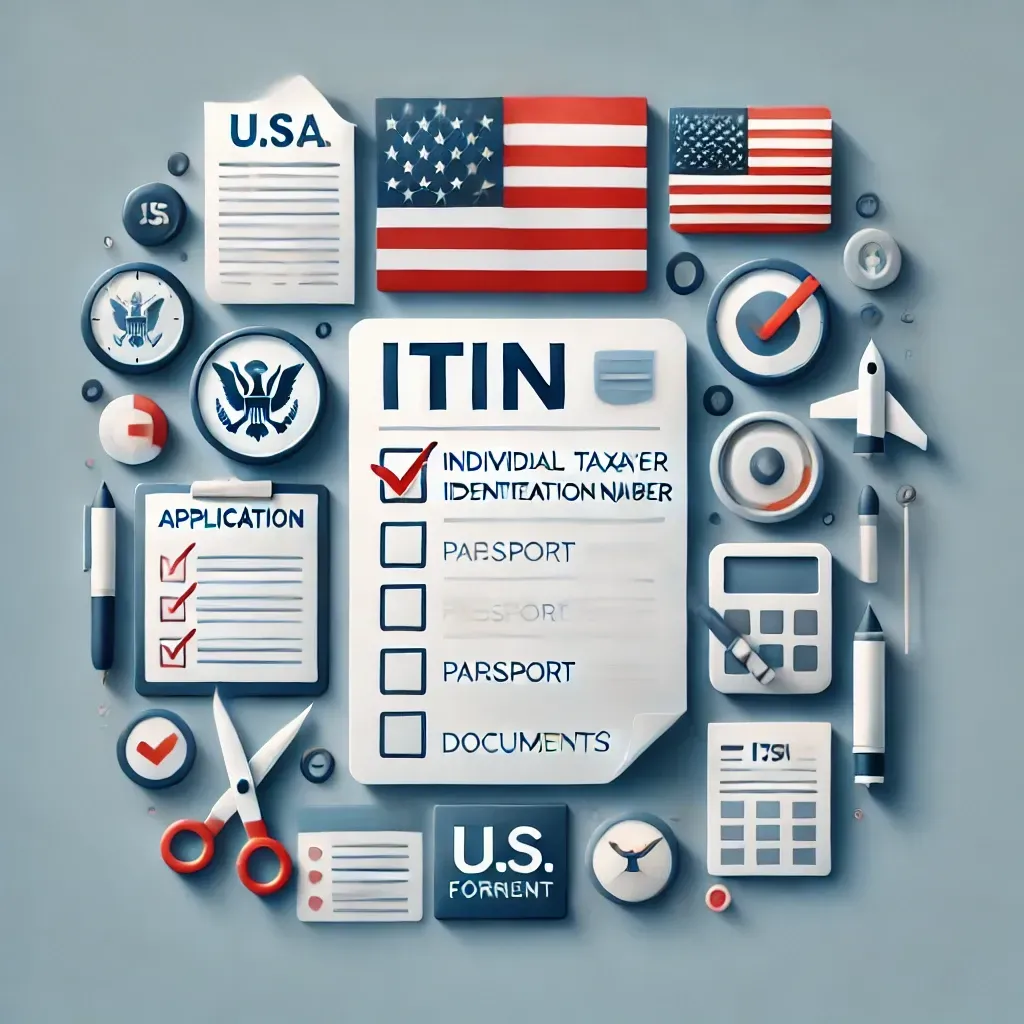
How to Apply for an ITIN as a Non-U.S. Resident
How to Apply for an ITIN as a Non-U.S. Resident
For non-U.S. residents, an Individual Taxpayer Identification Number (ITIN) is essential for fulfilling tax obligations, accessing financial services, and establishing a business presence in the United States. In this guide, we’ll walk you through the ITIN application process, eligibility criteria, and required documentation, ensuring you have a straightforward path to apply for an ITIN successfully.
What is an ITIN, and Why is it Important?
An ITIN (Individual Taxpayer Identification Number) is a tax-processing number issued by the IRS for individuals who need a taxpayer ID but are not eligible for a Social Security Number (SSN). This number is vital for non-residents who need to comply with U.S. tax laws, apply for certain financial services, or engage in business activities.
For non-U.S. residents, an ITIN is more than a number—it opens doors to essential financial and tax-related opportunities, helping you establish a solid financial foundation in the U.S. For additional information on ITIN benefits, visit ITIN Credit USA.
Who is Eligible for an ITIN?
Not every non-U.S. resident requires an ITIN. You are eligible if:
You do not qualify for a Social Security Number.
You need to fulfill U.S. tax obligations.
You are a non-U.S. resident earning income in the United States.
You are the spouse or dependent of a U.S. citizen or resident alien and require a taxpayer ID for tax purposes.
Confirming eligibility beforehand ensures you apply for the ITIN correctly and avoid unnecessary delays.
Step-by-Step Guide: How to Apply for an ITIN
1. Complete the ITIN Application Form (Form W-7)
The IRS Form W-7 is essential for the ITIN application process. This form collects your personal details, including your name, address, and reason for requesting an ITIN. Form W-7 can be downloaded from the official IRS website, and it is essential to fill it out accurately to prevent application issues.
2. Prepare Required Documentation
Certain documents are required to verify your identity and foreign status. Here are the primary documents you’ll need:
Passport: This is the most commonly accepted document and provides both identity and foreign status verification.
Foreign Birth Certificate: If you do not have a passport, a foreign birth certificate can be used alongside other identity-verifying documents.
National Identification Card: This card, issued by your home country, can also support your application.
All documents must be original or certified copies by the issuing agency. Photocopies or uncertified copies are not accepted by the IRS.
3. Submit Your Application
Your completed Form W-7 and supporting documents can be submitted in three ways:
Mail: Send your application and documents to the IRS ITIN Operations Center. The IRS recommends using a traceable mailing option for added security.
In Person: Visit an IRS Taxpayer Assistance Center (TAC) to submit your application and have your documents verified on-site.
Authorized Acceptance Agent: Some organizations, known as Certified Acceptance Agents (CAAs), are authorized to process ITIN applications. They can verify your documents, reducing the need to mail originals.
What to Expect After Submitting Your ITIN Application
The ITIN application processing time typically takes six to ten weeks, depending on the time of year and application volume. If approved, you’ll receive a letter from the IRS with your ITIN, which can be used immediately for tax reporting and compliance purposes.
FAQs about Applying for an ITIN
Can I Use an ITIN to Work in the U.S.?
An ITIN does not authorize you to work in the United States. It is only used for tax reporting and financial activities. For work authorization, a separate visa or permit is required.
What If My ITIN Expires?
If you have an existing ITIN, it may require renewal if it hasn’t been used on a U.S. tax return for three consecutive years or if certain digits fall under the IRS expiration list. You’ll need to submit a renewal application through Form W-7.
Can an ITIN Be Used for Building Credit?
Yes, an ITIN can help build a credit history by enabling non-residents to open accounts with institutions that accept ITINs in place of SSNs. This opens doors to financial products like loans and credit cards.
Final Thoughts: Why You Should Apply for an ITIN as a Non-Resident
Applying for an ITIN is a critical step for non-residents with tax obligations or business interests in the U.S. An ITIN helps ensure compliance with tax laws, access financial services, and can even support credit-building activities. Following this guide will make your ITIN application process straightforward, empowering you to manage your U.S.-related financial activities seamlessly.
To learn more about how an ITIN can benefit you, visit ITIN Credit USA, where you can access additional resources and guidance.